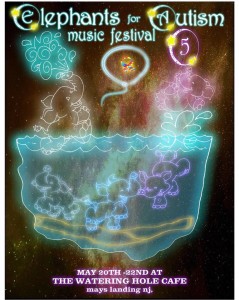The Unfolding Crisis: Climate Change, Exponential Loss, and the Imperative for Action
by Daniel Brouse
Human-induced climate change has become an exponential force in an unordered system, echoing the principles of chaos theory. Dr. Christopher Trisos of the University of Cape Town aptly describes our current predicament as the “Age of Loss and Damage.” Despite being in its early stages, the repercussions for people, other species, ecosystems, and our world are already heart-wrenching, as emphasized in a BBC interview.
As of July 2023, the Earth’s average temperature surged to 17℃, a stark contrast to the 20th-century average of 13.9℃. The gravity of the situation was underscored by UN Secretary-General Antonio Guterres in September 2023 when he declared that “climate breakdown has begun,” following the hottest Northern Hemisphere summer in recorded human history.
This climate breakdown is characterized by the creation of feedback loops and the crossing of tipping points. The consequences are dire: plant extinction, the disappearance of vital carbon sinks, and an unrelenting acceleration of the Earth’s temperature at an exponential pace. The threat extends beyond mere inconvenience; it jeopardizes our access to food, fresh water, and breathable air, potentially rendering our planet inhospitable to human life.
The European Space Agency’s Copernicus Climate Change Service reported a record-breaking average temperature of 16.38 degrees Celsius in September 2023, marking an alarming half-degree Celsius increase from the previous record set in 2020. Copernicus Director Carlo Buontempo rightly emphasized the severity of these changes, not as weather statistics but as a death sentence for people and ecosystems.
The UN’s Emission Gap Report in November 2023 delivered a sobering revelation: even if countries fulfill their emissions reduction pledges, global warming is projected to exceed +3°C this century. The International Cryosphere Climate Initiative echoed this sentiment, proclaiming that a 2-degree limit is dangerously high. The stark reality is that the melting of ice, indifferent to rhetoric, demands urgent action.
New Economics: Rethinking Economic Models in the Face of Crisis
Human-induced climate change, operating exponentially in an unordered system, necessitates a paradigm shift in economic thinking. The Age of Loss and Damage integrates economics, climate science, statistics, and physics to redefine how we perceive and address the economic impacts of climate change.
Traditional economic models, particularly “integrated assessment models” (IAMs), fall short in capturing the full spectrum of climate damage. IAMs rely on a quadratic function, squaring temperature changes to calculate GDP losses, while ignoring more suitable methods like the exponential function for rapid shifts. Thierry Philipponnat’s report from Finance Watch calls for a reevaluation of economic models to address the growing disruption of climate risk in the financial system.
However, even scientists struggle to comprehend and predict the rapid acceleration of climate change. The Domino Effect, or “tipping cascades,” reveals the underestimation of social-ecological systems. Record-breaking physical and economic impacts in 2023 served as a wake-up call, highlighting the urgency of understanding and mitigating climate-related tipping cascades.
Exponential Impact on Health, Real Estate, and Infrastructure
Climate change poses significant threats to human health, impacting air quality, water supply, and contributing to extreme weather events. Deadly humid heat emerges as a major short-term risk, with mental distress affecting most survivors of climate-related disasters. Anxiety related to climate change is reported by more than two-thirds of U.S. adults who have not experienced climate disasters.
Widespread challenges in food, energy, and water security, coupled with the unsustainability of infrastructure, signal the profound implications of a warmer world. Real estate, from personal property to essential infrastructure, faces increasing risks due to climate change. Dr. Sidd Mukherjee’s insights into violent rain events and storm surges emphasize the need for proactive measures and managed retreat strategies.
Litigation and Change: A Catalyst for Transformation
The catalyst for transformative change may lie in loss and damage litigation against oil companies and governments. Comparable to the tobacco industry’s reckoning, consumers may hold oil companies accountable for misleading information about the dangers of fossil fuels. Children globally are filing lawsuits against governments, asserting their basic human rights to a clean environment.
Conclusion: Welcome to the Age of Loss and Damage
Tipping points triggered by climate change threaten to release stored CO2 in nature, with potentially catastrophic consequences. The Earth’s temperature, already at risk of exceeding 1.5 degrees Celsius above pre-industrial levels, faces the prospect of an additional 6-degree rise. This trajectory is untenable, rendering vast regions of the Earth uninhabitable.
For the first time, global warming is set to continue regardless of human actions. While we cannot reverse the damage already done, immediate cessation of greenhouse gas emissions is imperative. Simultaneously, adapting our habitat to impede nature’s greenhouse gas emissions becomes a crucial strategy.
Our climate model uses chaos theory in an attempt to adequately account for humans and forecasts a global average temperature increase of 9 degrees Celsius above pre-industrial levels. The Age of Loss and Damage has arrived, demanding a collective response.
What Can You Do?
Individual actions matter in the face of this crisis. Reduce pollution, transition away from fossil fuels, consume less, and embrace love and compassion. The responsibility to protect our planet rests on every individual. Here is a list of additional actions you can take.
— The Age of Loss and Damage / Brouse (2023)
How is All Real Estate at Risk From Climate Change? / Brouse and Mukherjee (2024)
Toppled Tipping Points: The Domino Effect / Brouse and Mukherjee (2023)
Tipping Cascades, Social-Ecological Systems, and the Hottest Year in History / Brouse (2024)
The Human Induced Climate Change Experiment














